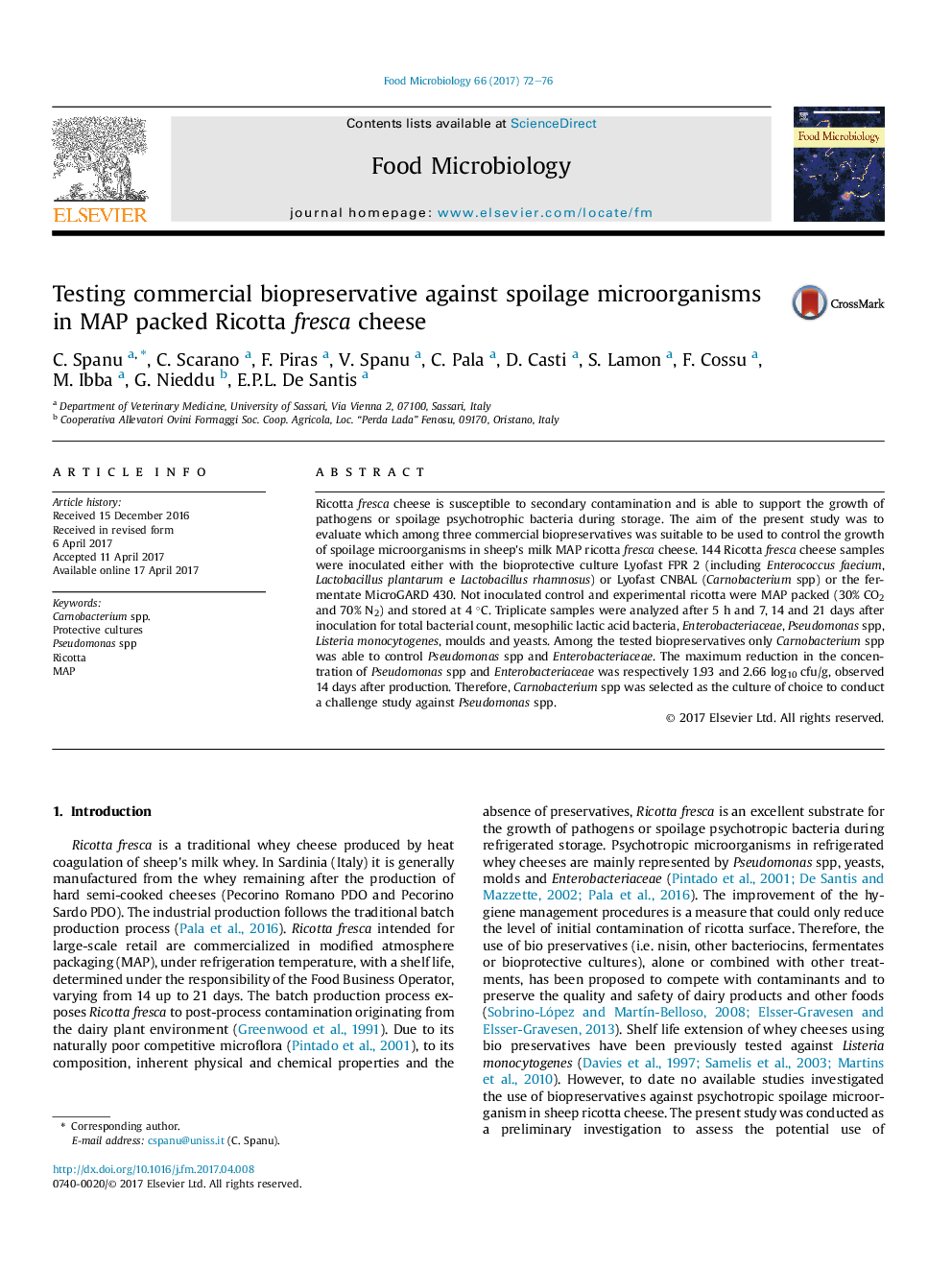| Article ID | Journal | Published Year | Pages | File Type |
|---|---|---|---|---|
| 5740031 | Food Microbiology | 2017 | 5 Pages |
â¢Ricotta fresca support psychotrophic microorganism growth during refrigerated storage.â¢3 Commercial biopreservatives were tested against spoilage bacteria in ricotta fresca.â¢Cultures Lyofast FPR 2, Lyofast CNBAL and the fermentate FERM 430D were tested.â¢Inoculation of Carnobacterium spp protective culture reduced Pseudomonas spp growth.
Ricotta fresca cheese is susceptible to secondary contamination and is able to support the growth of pathogens or spoilage psychotrophic bacteria during storage. The aim of the present study was to evaluate which among three commercial biopreservatives was suitable to be used to control the growth of spoilage microorganisms in sheep's milk MAP ricotta fresca cheese. 144 Ricotta fresca cheese samples were inoculated either with the bioprotective culture Lyofast FPR 2 (including Enterococcus faecium, Lactobacillus plantarum e Lactobacillus rhamnosus) or Lyofast CNBAL (Carnobacterium spp) or the fermentate MicroGARD 430. Not inoculated control and experimental ricotta were MAP packed (30% CO2 and 70% N2) and stored at 4 °C. Triplicate samples were analyzed after 5 h and 7, 14 and 21 days after inoculation for total bacterial count, mesophilic lactic acid bacteria, Enterobacteriaceae, Pseudomonas spp, Listeria monocytogenes, moulds and yeasts. Among the tested biopreservatives only Carnobacterium spp was able to control Pseudomonas spp and Enterobacteriaceae. The maximum reduction in the concentration of Pseudomonas spp and Enterobacteriaceae was respectively 1.93 and 2.66 log10 cfu/g, observed 14 days after production. Therefore, Carnobacterium spp was selected as the culture of choice to conduct a challenge study against Pseudomonas spp.
